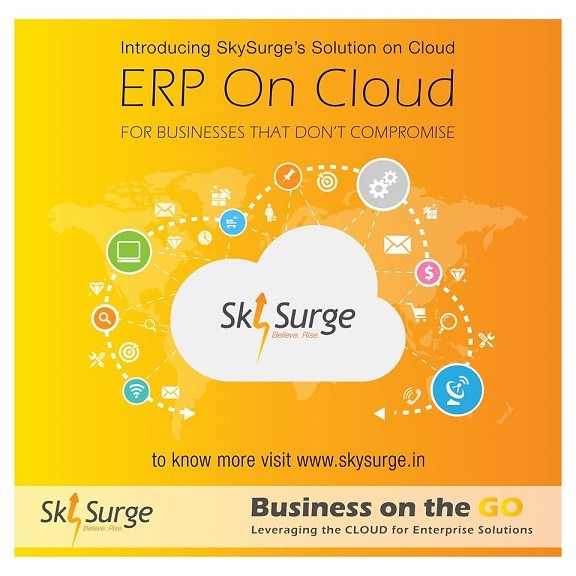SMBs have complexities and to upgrade their ERP is necessary for transforming their business. When your business is small or growing slowly, you can get away with a mix of disparate Software as a Service (SaaS) tools, spreadsheets, and collaboration over email to manage the business while leaders and employees focus on serving customers.
One of those tools is likely an ERP, financial, or accounting system. The finance person or team is probably using it to manage basic accounting, financial, and business reporting functions. In small and midsize businesses, finance is likely operating in a silo apart from the rest of the company.
As the business grows in complexity with new products and service offerings and growing sales channels, increasing the importance of monitoring supply chains, the financial function can quickly become overwhelmed. It is possible for them to use financial systems to track this level of detail sometimes, but other times they have to use different tools or spreadsheets to handle the data.
Small and midsize businesses experiencing these complexities should consider to upgrade their ERP solution. Upgrading can be perceived as a big project as it will impact most business functions and workflows. But there are significant benefits, especially when you consider modern, cloud-based ERP solutions that provide the majority of business functions, integration, and reporting, without the customizations that plagued older ERP systems.
Here are some reasons why an SMB should consider to upgrade to a modern ERP solution.
Accurate, real-time analytics
The signs of an outgrown ERP system or one that needs an upgrade are highly visible.
- Monthly closes take too long and require a growing number of people to review and close the books.
- Financial reporting requires many manual steps, is slow to produce, and has easy-to-find inaccuracies.
- Business leaders have growing needs to pull data from the ERP to perform their own analysis and reporting.
- Adding new cost codes, pricing variants, and account profiles to the existing ERP requires work performed by IT or specialized contractors.
- Forward-looking financial analysis is computed manually by pulling data from the ERP and other operational databases.
To be competitive and grow, companies must be more data-driven, operate with accurate data, and leverage predictive analytics to aid in decision-making. Employees charged with making complex decisions in areas such as supply chain logistics or dynamic pricing should have machine learning algorithms guiding them. There are too many business risks and unrealized opportunities, and competitors that already have real-time operational data have the advantage.
Advantages when you upgrade to cloud ERP
SMBs have the option of selecting an on-premises ERP, a SaaS ERP solution, or running the ERP in the cloud. There are benefits and tradeoffs to both options, but growing and evolving businesses will get several advantages from cloud ERPs.
There are many infrastructure-related benefits of operating an ERP in the cloud versus on-premises. First, running in the cloud helps lower IT’s involvement in setting up and managing the infrastructure. Instead, they can provide better services to leaders and employees around the functionality, configuration, administration, and integration. Secondly, for growing businesses, operating the ERP in the cloud better enables scaling up the infrastructure and adding new ERP services when they are required. Lastly, running in the cloud opens up new and more straightforward ways to back up data and enable disaster-recovery environments.
Operating ERP in the cloud often enables more data and workflow integration options compared to SaaS ERP. Integration typically occurs by software developers using the APIs exposed by the SaaS solution, or by third-party platforms that build integration services on top of these APIs. Cloud ERPs often have these options but usually provide other business tools and services that have out-of-the-box integrations. Also, cloud ERPs are often supported by integration platforms that enable connecting data and workflows with different tools and analytics.
Cloud ERP to help SMBs plan for the future
A cloud ERP is not your grandfather’s ERP that required significant infrastructure investments, customizations, and manual workarounds. That’s just the beginning of the potential benefits in a world where industries and competitors are moving fast.
For example, cloud ERP enables the integration of operational and experience data, enabling a data-rich customer profile and helping sales and marketing optimize their customer engagements. Cloud ERP also allows scaling operations that require processing data from IoT sensors or delivering innovation capabilities with artificial intelligence.
That future is here for progressive organizations that are ready to upgrade core business systems and invest in their futures.
Companies are under increasing pressure to move faster and adapt to new threats and opportunities. Learn how intelligent cloud ERP can help you rise to the challenge by visiting SkySurge.
SkySurge is one of the best SAP Partner in Bangalore having Clients Across India and Abroad.
SkySurge is also a Cloud Solutions Provider for Microsoft Products and a Cloud ERP company in Bangalore partnered with SAP Business One.


